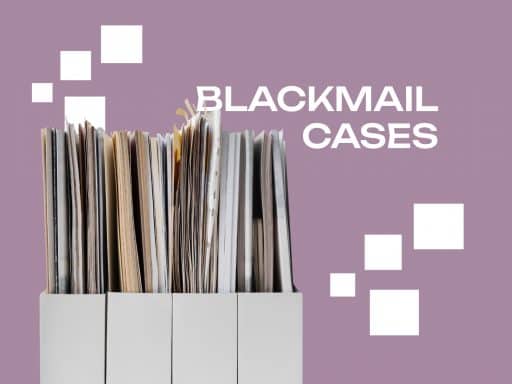You could be scrolling through social media or a dating app when you are suddenly met with the opportunity of a lifetime. A wealthy gentleman stumbled upon your profile and decided he’d like to pay you for your attention and affection.
While this may sound like a dream opportunity, you’d soon wake up to the harsh reality that you had fallen for a sugar daddy scam. These cybercriminals lure in targets with promises of financial benefits only to steal their personal information and leave them financially ruined.
Sugar daddy scams are one of many romance scams plaguing the internet. With more than 311,000 cases reported to the FTC since 2020, romance scams have the highest losses of any imposter scam with over $5.3 billion lost over that span(1).
Through smooth talking and the promise of financial gain, it’s not surprising that millions of dollars are lost annually to these scams each year. However, you can avoid falling victim by understanding how these scams arise and what makes them so effective.
What Is a Sugar Daddy?
A sugar daddy is traditionally an older man who offers a financial incentive in exchange for a younger individual providing something. This can range from a relationship that is either platonic or sexual.
These scams do not follow the same structure as traditional romance scam, such as oil rig scams, since there are some cases where the relationship is legitimate between two consenting adults. However, many of these exchanges lure in unsuspecting victims desperate for money and worsen their financial situation.
How Do Sugar Daddy Scams Work?
Like several other cybercriminal activities, there is a tried-and-true format that sugar daddy scams follow. If you can identify a suspicious message or individual before it’s too late, you can avoid consequences like cyber extortion and financial loss.
The Initial Outreach
A sugar daddy scam often starts with a direct message or friend request through a social media platform or online dating service. These scammers will often catfish young adults who have public profiles or look like they might need financial help, such as college students.
Building a Relationship
As the scammer begins to establish a relationship with their target, they’ll start to slowly introduce the idea of a sugar daddy relationship. Once this is established, the scammer will ask for financial data. They may explain that they need it to transfer money to you or use a phishing link to capture this information without the victim’s knowledge.
Taking the Money
As soon as financial information is collected from the scammer, they can begin to drain money from your accounts or steal your private data. Even if you don’t send your entire bank account number or login information, a sugar daddy scammer can wreak havoc on your identity.

What Are the Warning Signs of a Sugar Daddy Scam?
Understanding the red flags can ensure you don’t fall victim to cybercriminals who feign romantic interest in you online. Some signs that you could be communicating with a scammer include:
- Unsolicited messages from a stranger: Be wary of any messages from accounts you don’t know in person.
- The “too good to be true” rule: If someone you don’t know is offering large amounts of money for very little in return, you should ask yourself if the situation is feasible.
- Suspicious profiles: Scammers will often use bare-bones profiles with a fictitious alias to catfish their victims. Watch out for newer accounts with minimal information.
- High-pressure tactics: If someone is pressuring you intensely to provide them with personal information or comply with their request, you should take a step back and consider their motives.
How Can You Protect Yourself from Sugar Daddy Scams?
Knowing how to keep yourself safe online can keep your financial information protected and ensure you don’t fall victim to a cybercriminal. To protect yourself from a sugar daddy scam, keep these tips in mind:
- Avoid requests for personal information: You should never provide your personal information to a stranger online. Oversharing gives cybercriminals leverage to extort you.
- Report suspicious activity: If you’re uncomfortable with a message or what someone is asking for you, report their profile. Each platform has safety protocols in place to report suspicious activity.
- Adjust privacy settings: You can prevent strangers from contacting you on these platforms by adjusting your preferences so only people you know or approve of can reach you.
What Can I Do If I’m a Victim of a Sugar Daddy Scam?
Even young, internet-savvy users can fall victim to sugar daddy scams. As displayed in the stats above, you are definitely not alone. The following course of action can help you mitigate the damage of these schemes:
- Cut Off Communication: You should not engage the scammer any further, but keep the communication line open until a proper investigation has been completed.
- Gather Evidence: Piece together an accurate timeline of the scam including accounts, chat logs, and financial transactions.
- Secure Your Accounts: It’s a good idea to regularly change your passwords to your online profiles, emails, and bank accounts.
- Get Professional Help: Contact a cybersecurity organization who can help you track down the perpetrator and prevent further damage.
Can You Get Your Money Back?
The ability to recover lost funds to any cybercrime is largely dependent on the method of payment and the speed with which you report the fraudulent transaction. You can learn more by reading our article on recovering funds lost to scammers.
How DFC can help
If you or someone you know has been a victim of a sugar daddy scam, contact our team at Digital Forensics. We can help collect evidence and provide valuable information to you or the authorities to ensure the perpetrator is found.
Reach out today to our 24/7 hotline to get help from a Digital Forensics team member
Sources:
DISCLAIMER: THIS POST IS FOR INFORMATIONAL PURPOSES ONLY AND IS NOT TO BE CONSIDERED LEGAL ADVICE ON ANY SUBJECT MATTER. DIGITAL FORENSICS CORP. IS NOT A LAWFIRM AND DOES NOT PROVIDE LEGAL ADVICE OR SERVICES. By viewing posts, the reader understands there is no attorney-client relationship, the post should not be used as a substitute for legal advice from a licensed professional attorney, and readers are urged to consult their own legal counsel on any specific legal questions concerning a specific situation.






